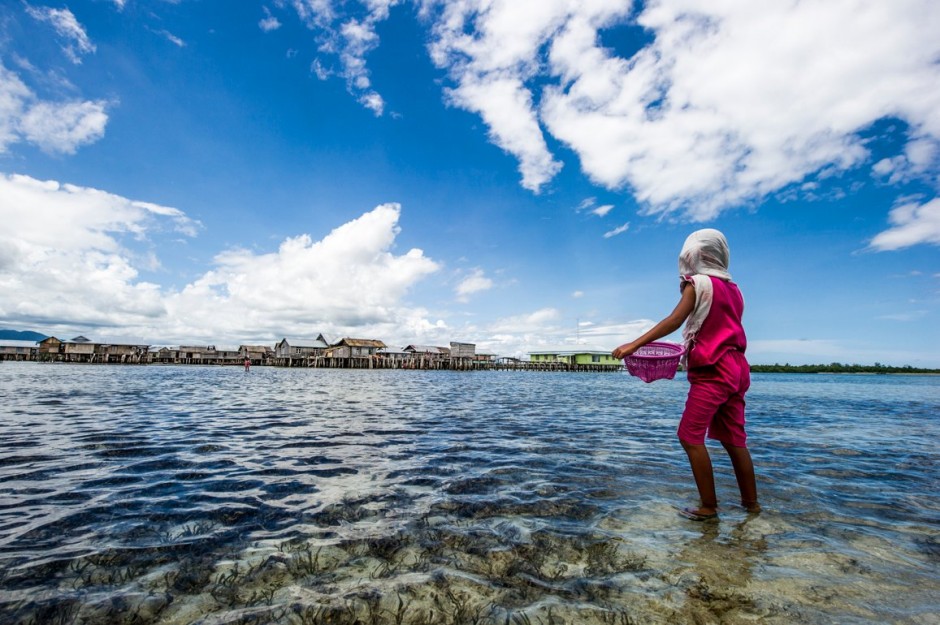The idea of living under water among sea creatures has always been my childhood fantasy. However, when I tried to hold my breath underwater, I was not able to survive for more than 10 seconds and then I had to swim back quickly to the surface before suffocating. This is because when we hold our breath, our heart rate slows, our blood vessels constrict, and the increase in pressure causes the lungs’ blood vessels to fill up with more blood; in extreme cases, the vessels can rupture, causing death.
The above-mentioned symptoms happen to any normal person, but not to the Bajaus. The Bajaus are a group of sea nomads living at sea for more than one-thousand years on small houseboats that float in the waters off Indonesia, Malaysia, and the Philippines. They spend their whole life in the sea and can stay underwater up to 13 minutes and reach depths of around 200 feet (approx. 60.96 meters) with no conventional diving aids to hunt fish or search for natural elements that can be used in crafts.

Studies showed that the Bajaus free diving talent was not a result of practice, but because of a genetic advantage developed over the years. Dr. Melissa Ilardo from the Centre for GeoGenetics at the University of Copenhagen published a research in the journal Cell stating that a DNA mutation for larger spleens provides the Bajau a genetic advantage that could help individuals cope with low-oxygen conditions.
In her study, Ilardo and her team used an ultrasound device to measure the spleen size in 43 Bajau people and 33 people from a neighboring group of land people. The results showed the Bajau person’s spleen size was 50% larger than those of their terrestrial neighbors. The spleen is a reservoir for oxygenated red blood cells in the body; when it contracts, it gives you an oxygen boost.
Ilardo theorizes that natural selection helped the Bajaus who have lived in the region for one-thousand years to develop some genetic advantage. Genetic testing revealed that certain versions of genes are more commonly found in the Bajau people more than normal, such as the PDE10A gene associated with higher levels of thyroid hormones, which makes spleens grow larger, and the BDKRB2 gene, which affects the constriction of blood vessels in the extremities, consequently controlling the oxygen amounts that reach the brain, heart, and lungs.
As amazing as that might sound, the sea nomad lifestyle is increasingly under threat. Several government programs have forced many of them to come ashore and their floating homes have become harder to maintain. They build them using light wood trees; as those trees are now endangered, the Bajaus are forced to use trees with heavier wood, which needs motors that are expensive to buy. As a result, they are moving to the land, but some of them still build houses on stilts to maintain a connection to the sea.
References
bbc.com
britannica.com
economist.com
news.com.au
news.nationalgeographic.com
popsci.com
theatlantic.com
theguardian.com